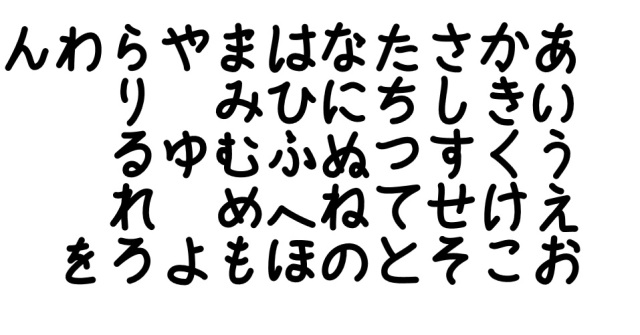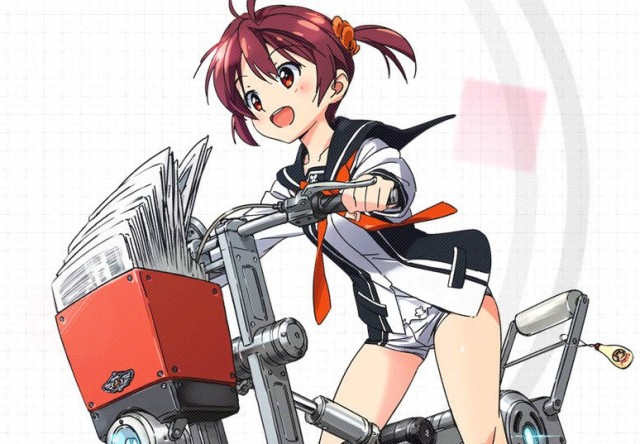
So while I’m in the midst of studying Japanese, I though I would share some very basic Japanese greetings and expressions with you guys. Although this is highly impossible, who knows there might just be some otakus out there who don’t know an inch of Japanese?
*Note that some of my translations may not be direct translations from the Japanese language, but the meanings are there and can be used as according to how the English translation is used in the English language.
| Greetings and Expressions | Meaning |
| Ohayou Gozaimasu | Good morning |
| Konnichiwa | Good afternoon |
| Konbanwa | Good evening |
| Oyasuminasai | Good night |
| Arigatou Gozaimasu | Thank you |
| Dou Iinashimashite | You’re welcome |
| Hajimemashite | Nice to meet you |
| Douzo Youroshiku | I hope for your guidance / I hope for you help |
| Ittekimasu | I’m leaving home |
| Itterasshai | Please leave and come back safely |
| Tadaima | I’m home |
| Okaerinasai | I’m glad you’re home / Welcome home |
| Sayounara | Goodbye |
| Jya Mata Ashita | See you soon |
| Jya Ne | See you soon |
| Omataseshimashita | Sorry for having kept you waiting |
| Ojyamashimasu | Sorry for intruding |
| Itadakimasu | Thanks for the meal (Before eating) |
| Gochisousama | Thanks for the meal (After eating) |
| Iie | No |
| Ee | Yes |
| Hai | Yes |
| Moshi Moshi | Hello |
Explanation of Uses
Obviously we all know how to say “good morning”, “good afternoon”, “good evening” and “good night”, so I’m going to skip on them.
“Dou Iinashimashite” is spoken after “Arigatou Gozaimasu”. For example:
A: Arigatou Gozaimasu. (Thank you.)
B: Dou Iinashimashite. (You’re welcome.)
“Hajimemashite” and “Douzo Youroshiku” is spoken when meeting someone for the first time, such as your classmates or workmates. For example:
A has just met B for the first time.
A: Hajimemashite. Douzo youroshiku. (Nice to meet you. I hope for your guidance)
B: Youroshiku. (I also hope for your guidance.)
“Ittekimasu”, “Itterasshai”, “Tadaima” and “Okaerinasai” is used before someone leaves home and after someone reaches home. We don’t usually do this to our parents, but in Japan, it’s common for people to do so towards their family members. For example:
A is just leaving home for school in the morning.
A: Ittekimasu. (I’m leaving home.)
A’s Mum: Itterasshai. (Please leave and come back safely.)
A comes back home from school in the afternoon.
A: Tadaima. (I’m home.)
A’s Mum: Okaerinasai. (Welcome home.)
“Sayounara”, “Jya Ne” and “Jya Mata Ashita” may seem to have the same meaning. However, “Sayounara” is normally used when we don’t expect to see the person for a long period. For example, Ann is going overseas to study. Before leaving, we would say to her “Sayounara” (Goodbye). “Sayounara” is also used when saying goodbye to someone we don’t really know. On the other hand, “Jya Ne” and “Jya Mata Ashita” is used when we expect to see the person soon. For example, if you are saying goodbye to your classmate, you would say “Jya Mata Ashita” or “Jya Ne” (See you soon) because you’ll be seeing him tomorrow. “Jya Ne” and “Jya Mata Ashita” is also used for people you are close with. However, if the person you are close with is leaving for a long time, you will be using “Sayounara”.
“Omataseshimashita” and “Ojyamashimasu” is used when visiting someone. For example:
A is visiting B. A presses the doorbell and waits for B to open the door. Finally B comes to the door.
A: Ojyamashimasu. (Sorry for intruding.)
B: Omataseshimashita. (Sorry for having kept you waiting.)
* The sequence is not important. Either can be spoke first.
“Itadakimasu” and “Gochisousama” is used before and after a meal. It is manners to do so in Japan or else you’ll be regarded as being rude, especially if you’re a visitor. For example:
Just before eating
A: Itadakimasu (Thanks for the meal.)
Instantly after finishing the meal
A: Gochisousama (Thanks for the meal.)
“Iie” is the japanese word for no. But there’s a difference between “Ee” and “Hai”. “Hai” is used in response when someone calls you. For example:
A: B!
B: Hai. (Yes)
“Hai” is also used when someone is looking for you. For example:
A: Where is B?
B: Hai! (Yes!)
“Ee” is used when answering questions. For example:
A: Are you B?
B: Ee. (Yes.)
“Moshi Moshi” is used when answering a phone call. For example:
A receives a phone call.
A: Moshi moshi? (Hello?)
So this concludes my very simple post on a few japanese greetings and expressions I know of. I’ll be posting more when I eventually learn more. Hope you found this useful. Cheers.

